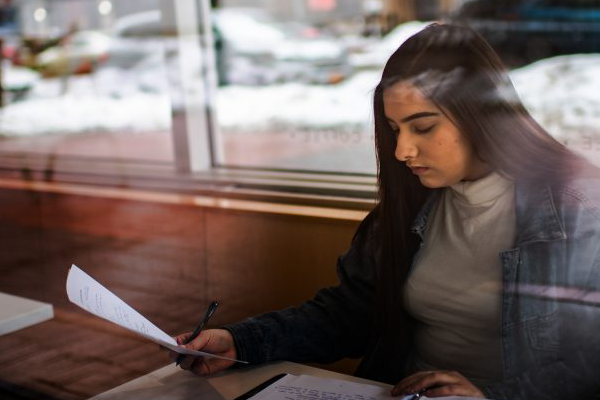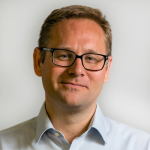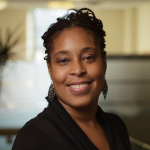
The Next Normal: Education and Health
How can we use lessons learned about modalities and systems that work well to improve personalized education and to widen access, fostering “equicovery” (i.e. recovery that promotes equity)?


Register
Course Information
- Audience: Public Health Professionals
- Format: Webinar
- Date/Time: Tuesday, October 5th 4:30 PM – 5:45 PM EST
- Price: Free
- Length: 1.25 hours
- Credential(s) eligible for contact hours: Sponsored by New England Public Health Training Center (NEPHTC), a designated provider of continuing education contact hours (CECH) in health education by the National Commission for Health Education Credentialing, Inc. This program is designated for Certified Health Education Specialists (CHES) and/or Master Certified Health Education Specialists (MCHES) to receive up to 1 total Category I continuing education contact hours. Maximum advanced-level continuing education contact hours are 1. Provider ID: 1131137 Event ID: SS1131137_NNEH
If you are not seeking a CHES/MCHES contact hours, if you complete the post-test and evaluation, you will receive a Certificate of Completion. The Certificate will include the length of the course.
- Competencies: Policy Development and Program Planning Skills
- Learning Level: Awareness
- Companion Trainings: None
- Supplemental materials:None
- Pre-requisites: None
About this Recording
The COVID-19 pandemic forced students and teachers out of the classroom and in front of computers. What did we learn from this unplanned shift to virtual learning and its impact on the future of education? This program is a part of “The Next Normal” series, designed to take a moment to pause and ask, as we emerge from the pandemic, what we have learned and why, in order to promote the health of all, we cannot return to pre-pandemic normal.
What you'll learn
At the end of the recording, participants will be able to:
- Discuss 6 key considerations for adapting disability research methods and practices in response to restrictions due to COVID pandemic
- Describe “best practices” of disability research, as learned from experience of international research teams
- Discuss inequalities in educational opportunities highlighted by COVID pandemic
- Identify positive aspects of educational experience prompted by COVID that will be used long-term going forward
- Describe the Times Higher Education (THE) Impact Rankings that assess how universities address social good by delivery of Sustainable Delivery Goals Describe the Times Higher Education (THE) Impact Rankings that assess how universities address social good by delivery of Sustainable Delivery Goals
Subject Matter Experts

Morgon Banks
Assistant Professor, London School of Hygiene & Tropical Medicine
@MORGONBANKS
Phil Baty
@PHIL_BATYChief Knowledge Officer, Times Higher Education

Chrishana Lloyd
@CHILDTRENDSSenior Research Scientist, Child Trends

Deborah Becker
@WBURDEBBECKERMODERATOR Senior Correspondent and Host, WBUR
Morgon is a mixed methods researcher working on a number of projects on disability. Her primary research focus is in disability, poverty and social protection in low- and middle-income countries. Current projects include: PENDA project (funded by FCDO): evaluates 8 interventions that aim to improve the well-being of people with disabilities in low and middle-income countries. COVID-19 and disability (funded by IDS): assessing the experience of people with disabilities in India, Zambia, Ghana, Bangladesh and Turkey (Syrian refugees in Istanbul) during the pandemic and their inclusion in COVID-19 response measures. Innovation to Inclusion (funded by UKAID): evaluates the i2i programme, which seeks to improve access of people with disabilities in Kenya and Bangladesh to waged employment. Impact evaluation of the Disability Allowance in the Maldives (funded by 3ie): explores the impact of the Disability Allowance, a monthly cash transfer, on poverty, well-being and quality of life amongst people with disabilities. Addressing Local Barriers to Inclusive Education for Children with a Disability in the Sahel (funded by Norwegian Research Council): identifies children with disabilities in Niger using the Key Informant Method and compares access to education between children with and without disabilites. Morgon has presented her research at the United Nations’ Conference of State Parties to the UN Convention on the Rights of Persons with Disabilities, the European Parliament and to a variety of academic, NGO/iNGO, and government audiences. She is a contributor to the UN Flagship Report on Disability & Development and the lead author on the Economic Costs of Exclusion and Gains of Inclusion of People with Disabilities.
Phil Baty is an international authority on university performance and strategy, with 25 years of experience in global higher education, including a decade (2009-2019) as Editor of the prestigious Times Higher Education (THE) World University Rankings and its derivative analyses. He is an award-winning journalist and a sought-after speaker and commentator. Phil was the creator of the THE World Academic Summit and he leads the team that organises the summit and THE’s extensive series of global university leadership events and awards. He tweets from @Phil_Baty
Chrishana M. Lloyd, PhD, is a nationally recognized expert on the study and implementation of interventions to support early childhood professionals in environments such as home, community, and Head Start child care settings. She has more than 20 years of experience in the social science and education fields and considerable experience with applied place-based research and technical assistance and has served as the primary investigator (PI) and/or lead implementation researcher on both federal and privately funded research projects. In addition to her research experience, Dr. Lloyd has led or served as a member of federal and state-level early childhood-focused workgroups and has consulted with many education and social service agencies, including the Bank Street Education Center and the National Association of Social Workers. She has also authored numerous reports, articles, and technical assistance resources focused on early childhood interventions and supports for implementation, and actively uses innovative research methods like eco mapping and audio and video taping strategies to support and understand the work of early care and education professionals. A common theme throughout Dr. Lloyd’s career is the integration of research and policy to inform and support the application of equitable and high-quality practices in early childhood.
Deborah Becker is a senior correspondent and host at WBUR. Her reporting focuses on the criminal legal system, mental health and addiction. She is a substitute host on several WBUR programs. Becker’s reporting also has been featured on National Public Radio and on radio stations throughout New England. Her work on the Massachusetts drug lab scandals was highlighted in the 2020 Netflix documentary “How to Fix a Drug Scandal.” Becker has received numerous awards for her reporting, interviewing, newscasts and investigative reporting. She has also completed several fellowships – including the 2015 Blue Cross Blue Shield of Massachusetts Health Coverage Fellowship, the 2016 Rosalynn Carter Mental Health Journalism Fellowship and the 2019 National Press Foundation Science Journalism Fellowship. Deborah studied journalism at St. Bonaventure University. She lives with her family in central Massachusetts.
Registration
Select the Enroll Me button below to register for this recording. If you have any trouble accessing the recording, contact support@nephtc.org.
Acknowledgement: This project is/was supported by the Health Resources and Services Administration (HRSA) of the U.S. Department of Health and Human Services (HHS) under grant number UB6HP31685 “Regional Public Health Training Center Program.” This information or content and conclusions are those of the author and should not be construed as the official position or policy of, nor should any endorsements be inferred by HRSA, HHS or the U.S. Government.

